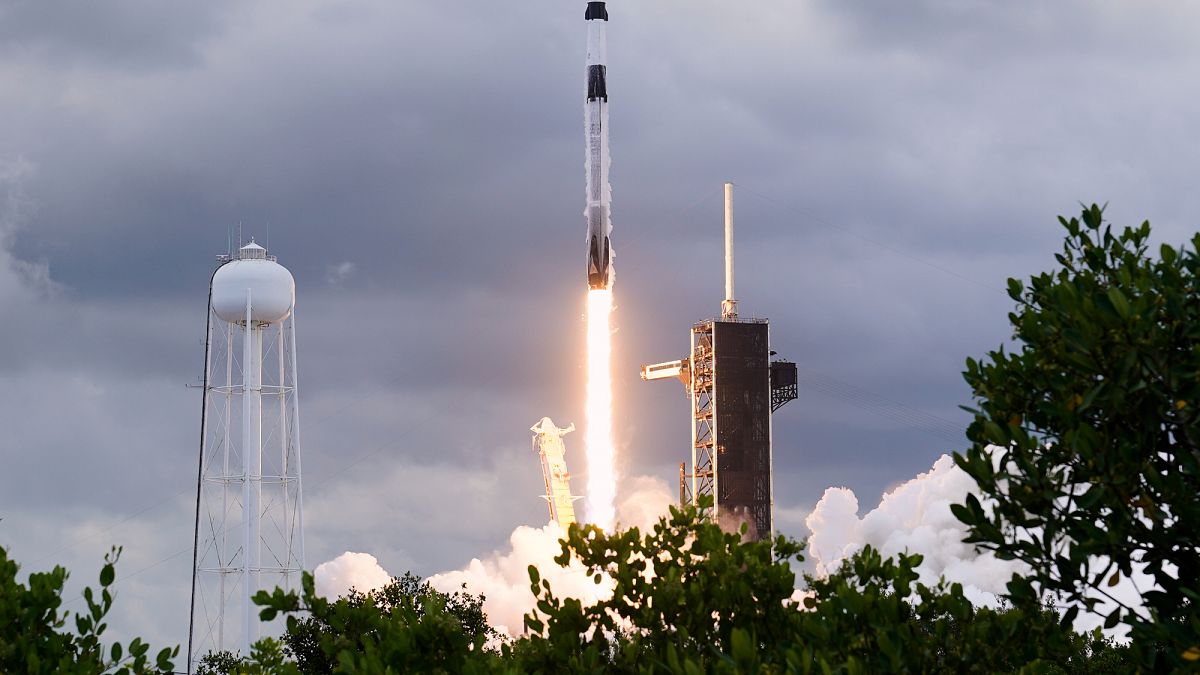

In a harmonious blend of technological triumphs and regulatory reforms, the past week has witnessed notable progress both in space exploration and in the realm of artificial intelligence. These developments stand as inspired examples of international collaboration and forward-thinking governance aimed at addressing pressing modern challenges.
In a landmark moment, SpaceX successfully transported a diverse team of four astronauts to the International Space Station. The mission, which not only highlights technological prowess but also international cooperation, included two astronauts from NASA, further emphasizing the unifying potential of space exploration. This multinational crew, which also consisted of astronauts from Russia and Japan, arrived at their destination just 15 hours after the launch. Such rapid transit not only demonstrates SpaceX’s growing ability to efficiently manage interstellar missions but also reflects the shared spirit of collaboration that space travel fosters. The successful journey sets the stage for future missions and deepens the partnership between space agencies across continents, aligning with the ongoing commitment to peaceful exploration beyond our planet. As we celebrate these milestones, we are reminded of the vast possibilities that await humanity among the stars.
Back on Earth, the European Union is advancing its efforts to regulate artificial intelligence through the enforcement of the AI Act. This legislative milestone comes as a part of the EU’s broader strategy to navigate the complex ethical and legal landscape of AI technologies. While the legislation aims to bring comprehensive oversight to the development and deployment of AI, some creative industry groups have voiced concerns, asserting that the act falls short in safeguarding the copyright of artists. These groups emphasize the need for more robust provisions to shield their copyrighted works from being utilized in the training of AI systems without explicit consent. The balance between fostering innovation and protecting intellectual property continues to be a delicate issue, inviting ongoing dialogue and refinement of policies to ensure fair and equitable technological advancement.
Amidst these regulatory endeavors, an intriguing development in the realm of AI has captured attention worldwide. Hyper-realistic AI-generated news anchors have begun to circulate online, blurring the lines between reality and digital fabrication. These virtual presenters, characterized by their life-like appearance and convincing delivery, have demonstrated the incredible capabilities of AI in mimicking human behavior. However, this technological feat also poses new challenges, particularly in the realm of misinformation. The ease with which these AI anchors can disseminate false information underscores the pressing need for stringent regulations and ethical guidelines that ensure truth and transparency remain at the forefront of digital content creation.
In support of responsible AI deployment, a coalition of 26 technology companies has willingly adhered to the European Commission’s AI Code. By signing up for this code, these companies are making a commitment to uphold the principles outlined in the AI Act. While adopting this code marks a significant step towards unifying efforts around ethical AI development, these companies also bear the responsibility of aligning with the more detailed regulations that took effect on August 2nd. This collective pledge seeks to fortify trust in AI systems, ultimately encouraging a future where technological advancements are not only innovative but ethically grounded.
At this juncture, as the world witnesses rapid advancements in technology and space exploration, the underlying theme remains one of collaboration and mindful progression. Whether exploring the vast expanse of the universe or shaping the digital landscapes here on Earth, these accomplishments remind us of the limitless potential that can be realized when nations, organizations, and individuals unite in pursuit of a common good. As innovations continue to unfold, maintaining a harmonious balance between progress and responsibility will pave the way for a brighter, more integrated future. Together, we navigate the complexities of this new era with optimism and a shared commitment to growth, innovation, and ethical stewardship.
Source: {link}
